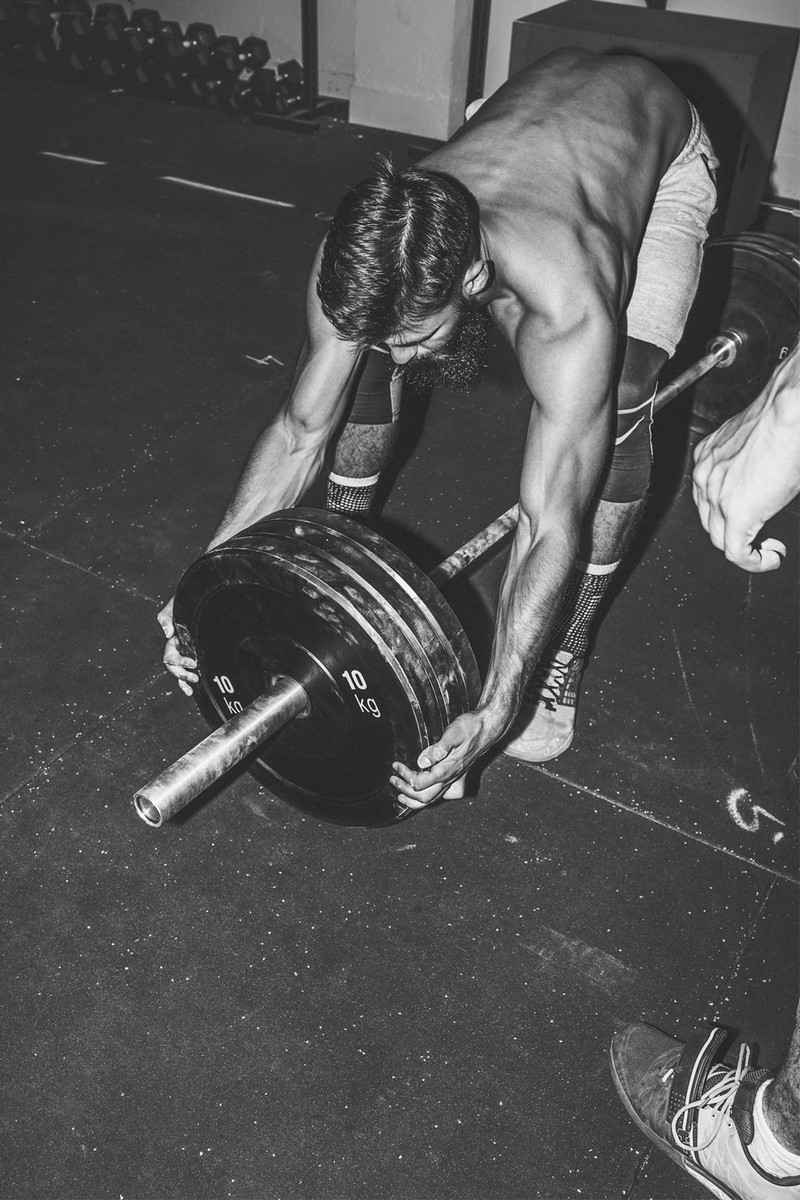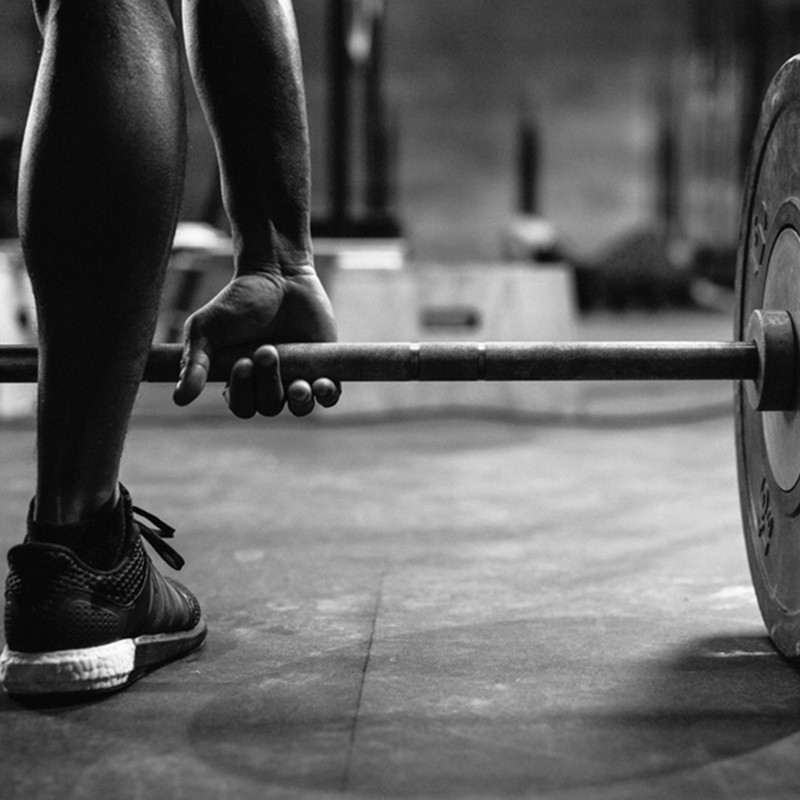The Expert Guide To Building Muscle Without Meat
DO…
Know The Benefits
“Everyone can benefit from getting more fibre and antioxidants in their diet in the form of whole plant foods, especially if you’re a keen athlete. Not only has research linked a vegan diet with lower blood pressure and cholesterol, as well as lower rates of heart disease, type 2 diabetes and some types of cancer, but athletes following a plant-based diet may perform better and recover more quickly due to a higher intake of nutrients.” – Rob Hobson, sports nutritionist
Work Out Your Protein Requirement
“As a general rule, aim to consume at least 0.8g of protein for every kilogram you weigh. For example, if you weigh 91kg, you should be having around 73g of protein each day. If you’re looking to increase muscle mass, you need to increase your protein intake – aim for 2g of protein per kg of bodyweight – alongside regular strength training. This means that if you weigh 91kg, you should aim for 182g of protein per day to build muscle. To reach this goal, get into the habit of starting the day with a protein-rich smoothie made with protein oats, plant milk, peanut butter, chia seeds, banana and hemp seeds, and add tofu, nuts and chickpeas to pasta dishes.” – David Wiener, training & nutrition specialist at Freeletics
Plan Your Diet
“A well-planned, plant-based diet will provide the body with a fantastic source of nutrients to optimise training and recovery. However, it’s worth giving some thought to the amino acids you’re consuming to ensure you’re meeting your protein requirements. Amino acids make up the protein that our bodies need. Meat, eggs and dairy are the most common forms of animal protein as they contain all of the nine essential amino acids. Most sources of plant-based protein are lacking in at least one of the nine amino acids – soy and quinoa are two exceptions. Chia and hemp seeds, buckwheat and amaranth are also rich in amino acids. The key is to eat a variety of plant proteins at each meal to ensure you’re covering your bases when it comes to amino acids – think puy lentil bolognese with pasta, porridge made with oats and soy milk, a Thai green curry with tofu and rice, or nut butter on wholemeal toast.”– Rob
Eat At Least 25g Of Protein Per Meal
“The amount of protein you eat throughout the day makes a difference. Studies suggest you should spread your intake throughout the day, aiming for around 25g per meal if you’re looking to gain muscle mass. You’ll also want to ensure you’re getting a steady supply of the essential amino acid leucine, which acts as the primary trigger to stimulate muscle protein synthesis. The more leucine a food contains, the more effective it will be at stimulating muscle growth. Tofu, black beans, vegan Quorn, lentils and quinoa are good sources of leucine.” – Rob
Train Three Times A Week
“As research stands, there are no secret ways to optimise your training for building muscle. It comes down to a simple formula: use heavy, compound lifts (exercises that use multiple muscle groups at the same time) as part of your workouts three times a week, ensuring you are going to near failure each time. This will ensure you are stimulating the adaptations required for muscle building. Nutrition wise, ensure you eat adequate energy around your workout, and consume at least 0.3g of protein per kilogram of your bodyweight in the hours following your session.” – Lily Chapman, performance coach & nutritionist at P3RFORM
Top Up With Supplements
“Vitamin B12 is essential to convert food into energy and keep blood sugar stable. It also supports red blood cell production and immune function, as well as contributing to serotonin production, which ensures healthy sleep cycles, appetite and mood. However, B12 is hard to find in plant foods, so it’s worth taking a supplement if you don’t eat meat. Brown rice, quinoa, almonds, sesame seeds and walnuts also contain some B12, so be sure to eat plenty of these, too. At the same time, if you’ve noticed you aren’t bouncing back as quickly after a workout or are fatiguing more quickly during a session, consider taking a zinc supplement, which plays a central role to energy and endurance.” – David
Find A Protein Powder You Like
“If you think a plant-based protein powder isn’t as effective as whey, think again. A new wave of better-designed, plant-based protein powders – including the likes of soy, rice, pea and hemp – are more effective with better digestibility. In fact, many people who struggle to digest whey protein find they get on much better with a vegan option. Try tracking your daily protein intake for a week; if you find you are consistently missing your protein target and are struggling to find ways to increase via your diet, consider using a protein powder. Mix with your favourite plant-based milk, add a scoop to yoghurt or add to baking recipes.” – Helena Thomas Harman, nutritionist at Holland & Barrett

DON’T…
Fixate On Protein
“We know protein is essential to muscle, but healthy fats play an equally important role. Fats are an important source of energy used to fuel longer exercise and endurance activities, like hiking and cycling. They can also reduce inflammation to aid muscle soreness and tissue repair. Omega-3 fatty acids have been shown to increase blood flow to muscles during exercise, decreasing muscle soreness and reducing swelling. They can also improve insulin sensitivity, which enhances fat burning and inhibits fat storage. Flaxseed, seaweed, algae, berries and cauliflower are the best plant-based sources of omega-3 – it could also be worth taking a supplement to keep levels topped up.” – David
Forget About Calories
“If you’re very active or training for an event, be sure to keep your calories up. A plant-based diet is naturally lower in calories than an omnivorous diet, so if you are into dynamic workouts – like HIIT – or take part in regular endurance sports, you’ll need to up your calorie intake to minimise muscle breakdown. If you train hard but don’t eat enough, you probably won’t gain much muscle or get stronger, and this applies to everyone, whether you eat meat or not. Just don’t make the mistake of relying on processed vegan food to get calories up. Your body will function at its best when it’s fed whole, unprocessed foods. ‘Vegan’ is not always a health claim.” – Rob
Ignore Creatine
“Creatine exists naturally in your body and helps fuel your muscles. Studies show topping up your levels with a supplement can help your muscles produce explosive energy during exercise, improve strength and increase lean muscle mass. It can also help the muscles recovery more quickly post-exercise. Take 3-5g per day and you’ll increase your creatine stores by up to 20% in just 30 days.” – Lily
Get Stuck In A Rut
“Plant-based eating needn’t be boring. In fact, variety is king – the more different foods you can eat throughout the week, the more nutrients and amino acids you’ll be feeding your muscles. For breakfast, try a bowl of soya yoghurt with mixed nuts, pumpkin seeds and dried fruit, protein pancakes made with vegan protein powder, topped with sliced banana and honey, or scramble tofu with chopped tomatoes, pepper and onions. Lunch could be a mixed bean wrap with avocado, or a bowl of red lentil pasta with a creamy tomato sauce made with cashew nuts. Dinner could be a tofu stir fry with soba noodles and vegetables, or a Quorn tagine made with vegan Quorn pieces and chickpeas cooked in tomato sauce with dried apricots. Edamame beans, chia seed pudding and roasted chickpeas all make great snacks.” – Rob
For more information, head to P3RFORM.co.uk, RobHobson.co.uk, Freeletics.com & HollandAndBarrett.com. You can also book a private consultation with Rob here.
DISCLAIMER: We endeavour to always credit the correct original source of every image we use. If you think a credit may be incorrect, please contact us at [email protected].


